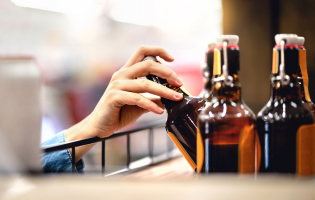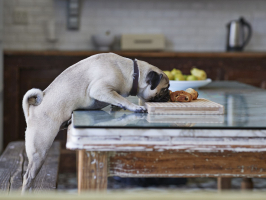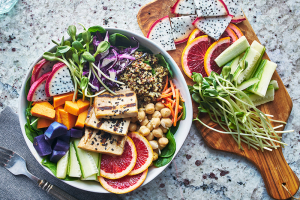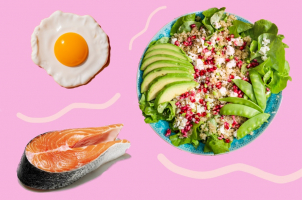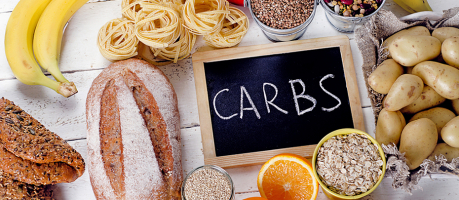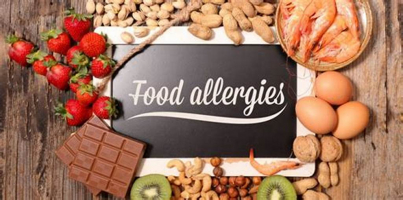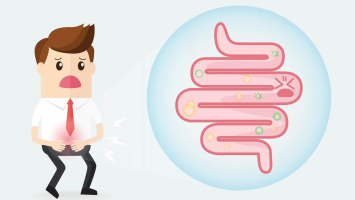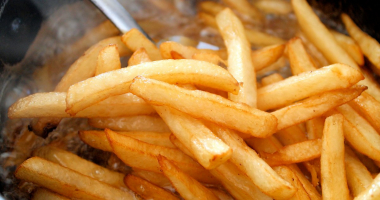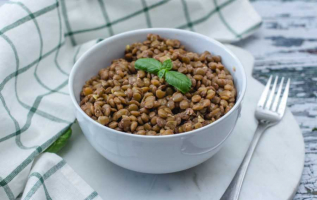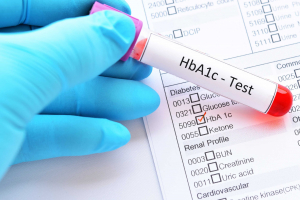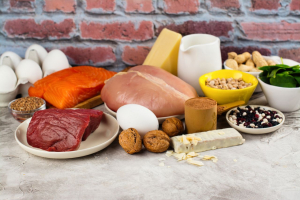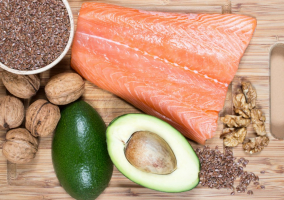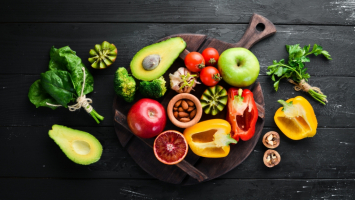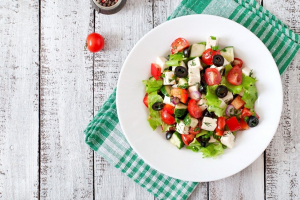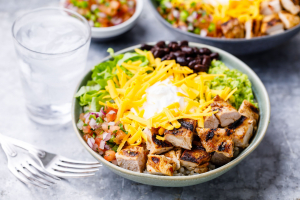Top 7 Foods That Can Cause Acne
Nearly 10% of people worldwide suffer from acne, a common skin condition. Sebum and keratin production, acne-causing bacteria, hormones, skin pores, and ... read more...inflammation are some of the factors that affect acne development. Although there has been controversy over the relationship between diet and acne, a new study shows that diet can greatly impact acne development. Continue reading to find out some of the foods that can cause acne that are listed below!
-
Compared to those who have little or no acne, people with acne tend to consume more refined carbs. The foods high in refined carbs are bread, crackers, cereal, or desserts made with white flour; pasta made with white flour; white rice and rice noodles; sodas and other sugar-sweetened beverages; sweeteners like cane sugar, maple syrup, honey, or agave;...
According to one study, people who regularly consume added sugars had a 30% higher risk of developing acne than those who frequently eat pastries and cakes had a 20% greater risk. Sugars and refined carbs cause a sudden insulin spike, which exacerbates acne. As insulin levels increase, so do androgen hormones and a substance known as IGF-1. This combination makes skin cells grow at a faster rate and increases sebum production, as well.
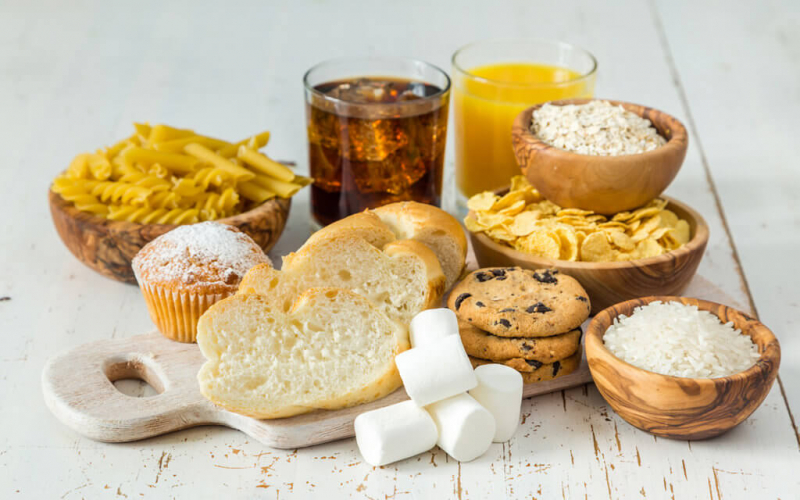
Refined Grains and Sugars 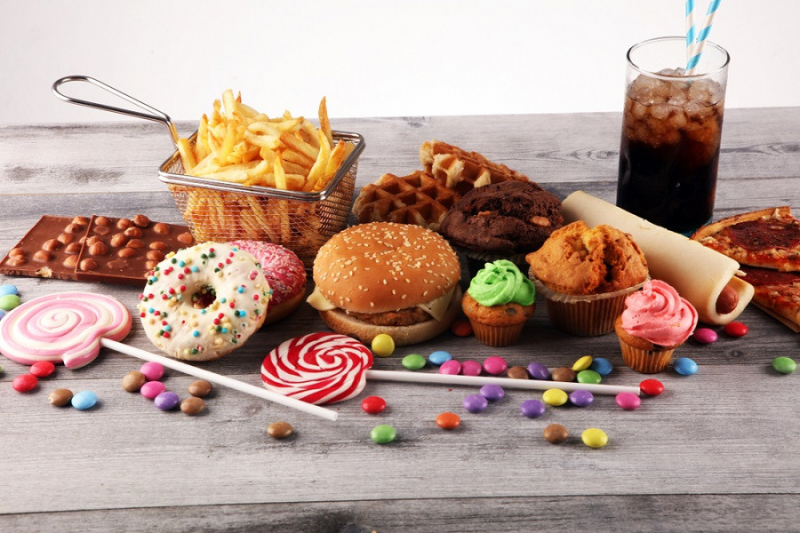
Refined Grains and Sugars -
Even though cow's milk has a low glycemic index, some research indicates that consuming this kind of milk may cause more acne breakouts. All types of cow's milk, whole, low-fat, and skim, have been linked to acne in these studies.
Many studies have discovered a link between teen acne severity and milk products. Young adults who regularly consumed milk or ice cream were also four times more likely to have acne, according to two studies. Besides its impact on blood sugar, milk is known to raise insulin levels, which might make acne worse. Furthermore, the amino acids in cow's milk stimulate the liver to produce more IGF-1, which has been linked to the development of acne.
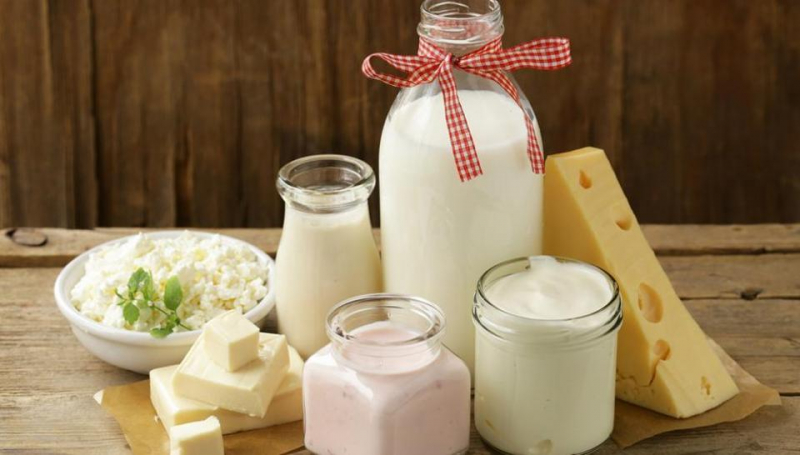
Dairy Products 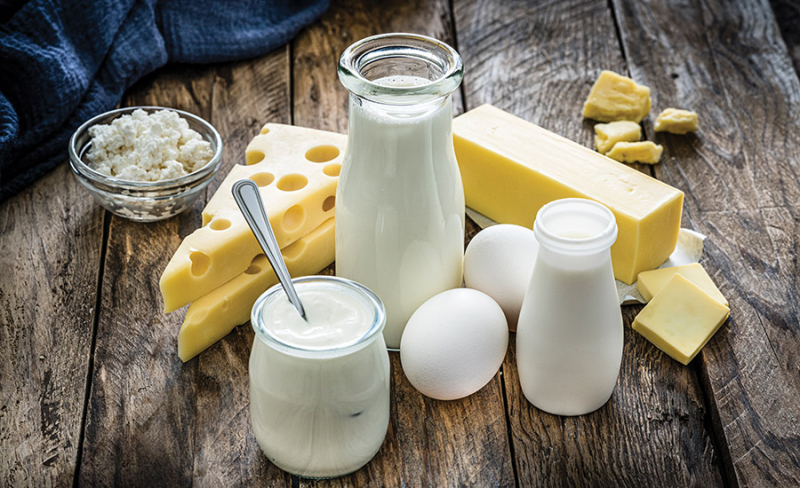
Dairy Products -
A Western-style diet high in calories, fat, and refined carbohydrates are closely linked to acne. The staples of a typical Western diet include fast food items including burgers, nuggets, hot dogs, french fries, sodas, and milkshakes, which may raise the risk of acne.
A high-fat diet was linked to a 43% higher chance of getting acne, according to one research including more than 5,000 teens and young adults from China. Fast food consumption on a regular basis raised the risk by 17%. The regular consumption of burgers or sausages was linked with a 24% higher chance of getting acne, according to one separate research involving 2,300 Turkish men.
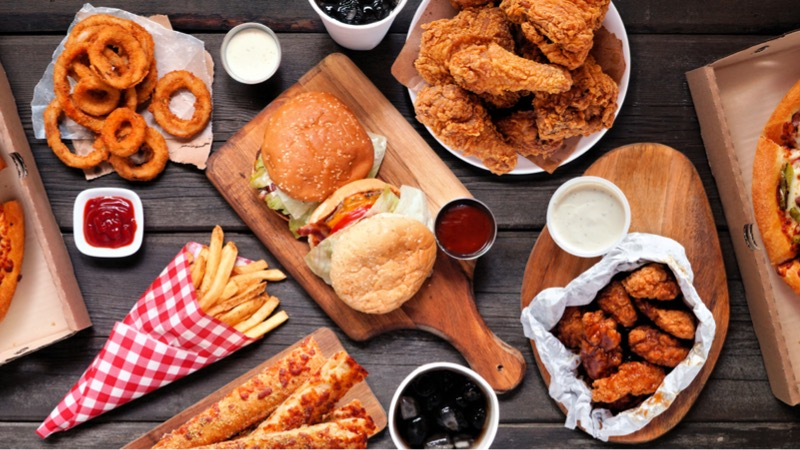
Fast Food 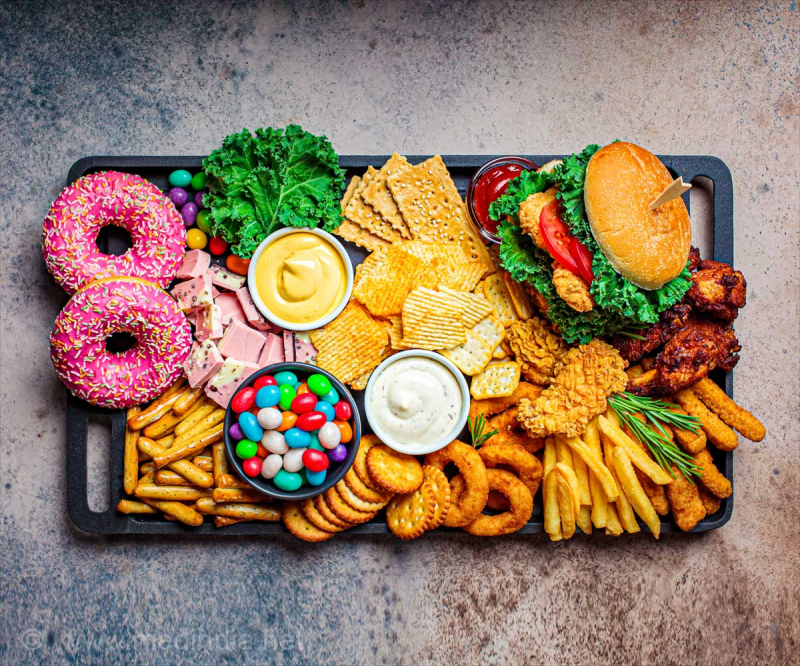
Fast Food -
Acne has also been linked to foods high in omega-6 fatty acids, which are known to be precursors to inflammation. These fatty acids are different from omega-3 fatty acids, which have been found to lower sebum production when present in high concentrations and minimize the risk of acne.
Large omega-6 fatty acid consumption in the typical Western diet has been related to higher levels of inflammation and acne. This could be because Western diets tend to be high in omega-6-rich foods like corn and soy oils and low in omega-3-rich foods like fish and walnuts. The body gets an inflammatory state as a result of this imbalance of omega-6 and omega-3 fatty acids, which may make acne more severe. On the other hand, taking supplements of omega-3 fatty acids has been shown to lessen the severity of acne and may lower inflammation levels
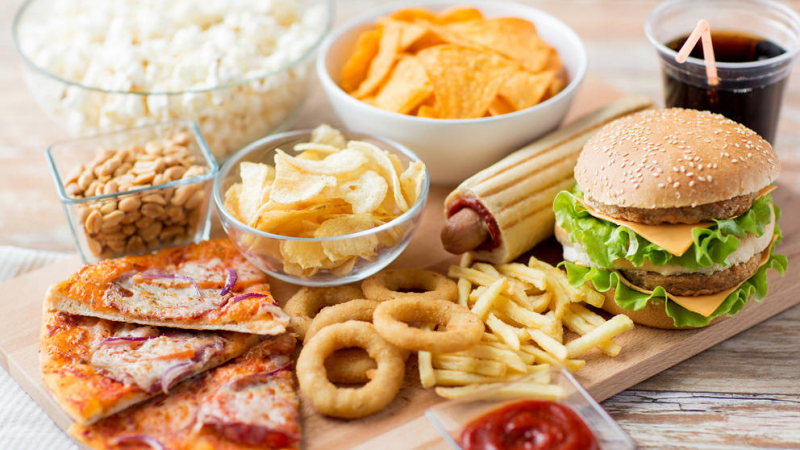
Foods Rich in Omega-6 Fats 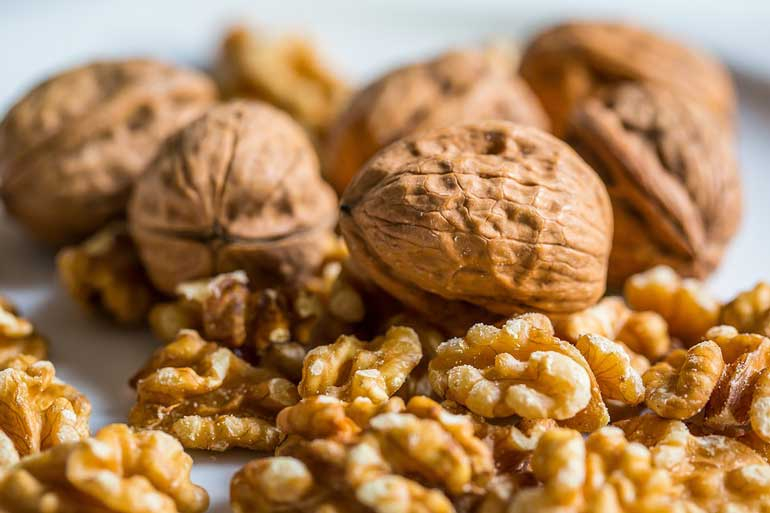
Foods Rich in Omega-6 Fats -
Since the 1920s, chocolate has been thought to be an acne trigger, but no consensus has been reached. Several informal studies have connected eating chocolate with a higher chance of getting acne.
In a more recent study, it was shown that eating 25 grams of 99% dark chocolate every day increased the number of acne lesions in acne-prone males after just two weeks. In another study, it was shown that men who took daily capsules of 100% cocoa powder had considerably more acne lesions after a week than those who received a placebo. It is unknown why chocolate could worsen acne, however one study revealed that consuming chocolate increased the immune system's response to bacteria that cause acne, which may help to explain these findings.
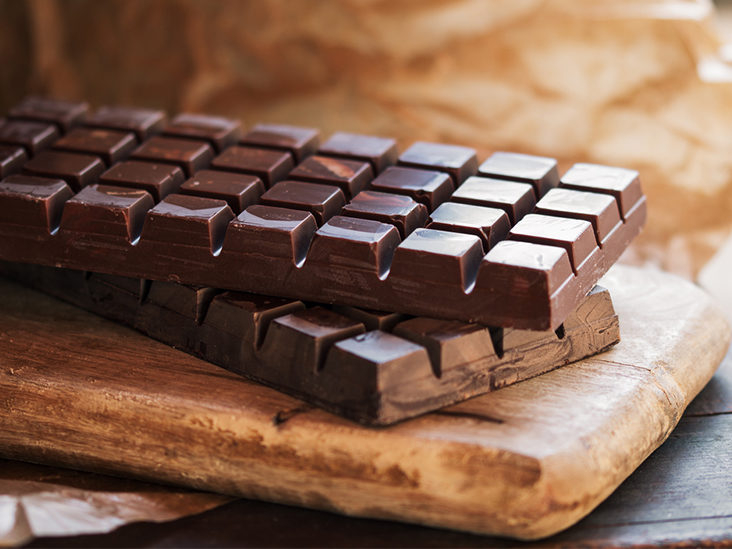
Chocolate 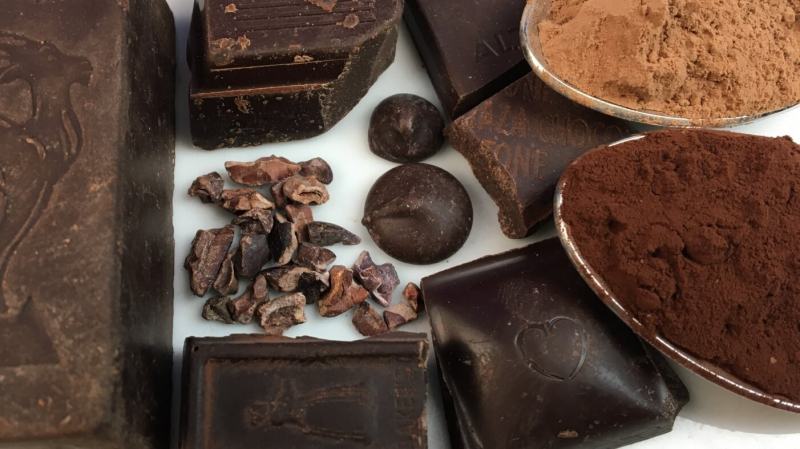
Chocolate -
Whey protein is a common dietary supplement. The amino acids leucine and glutamine are abundant in this supplement. Acne may develop as a result of the faster growth and division of skin cells caused by certain amino acids.
Whey protein's amino acids can also stimulate the body to create more insulin, which has been connected to the emergence of acne. Whey protein consumption and acne in male athletes have been linked in several case studies. Another study discovered a connection between the length of using whey protein supplements and the severity of acne. These studies suggest a link between whey protein and acne, but much more analysis is required to determine whether whey protein causes acne.
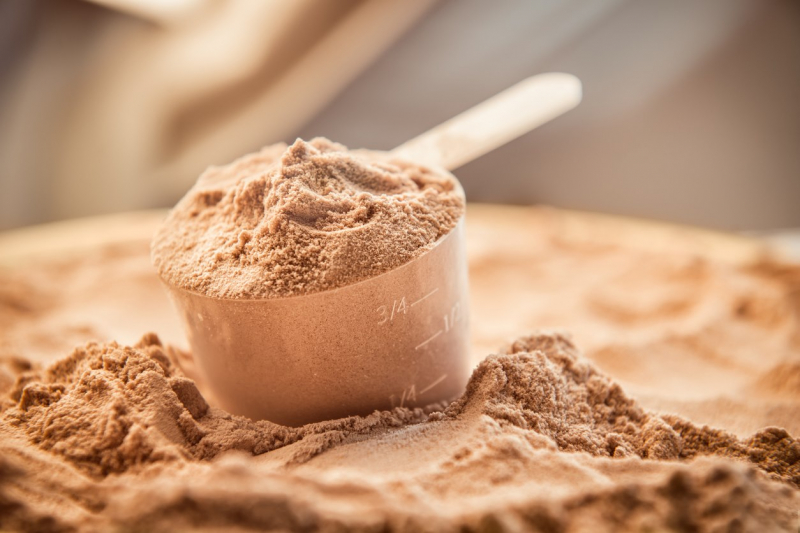
Whey Protein Powder 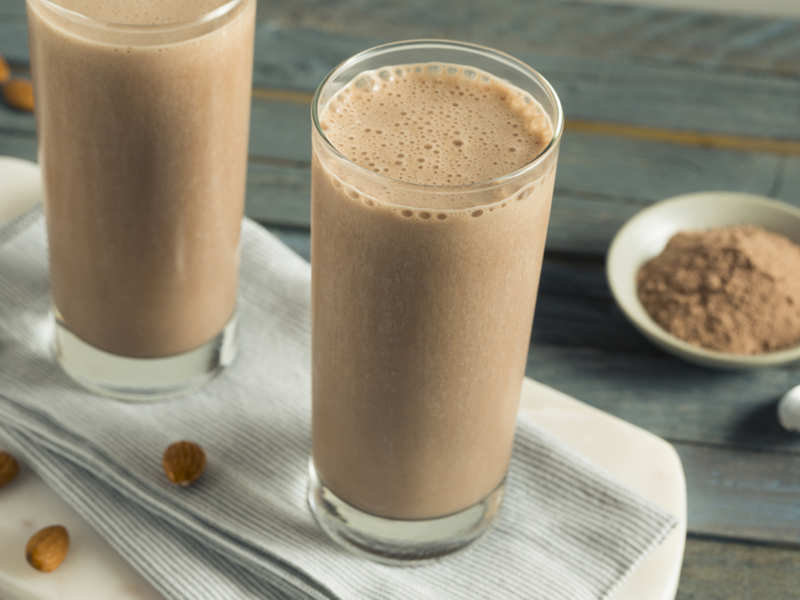
Whey Protein Powder -
It has been suggested that the underlying cause of acne is an inflammatory condition. Anti-inflammatory medicines, such as corticosteroids, are successful in treating severe acne, and those who have acne have higher amounts of inflammatory molecules in their blood.
Food sensitivities commonly referred to as delayed hypersensitivity reactions are one way that food may cause inflammation. When your immune system mistakenly identifies food as a threat and starts an immune attack against it, food sensitivities occur. This results in high levels of pro-inflammatory molecules circulating throughout the body, which might exacerbate acne. Because there are countless foods that your immune system could react to, the best method to identify your specific triggers is to undertake an elimination diet under the guidance of a certified dietitian or nutrition consultant.
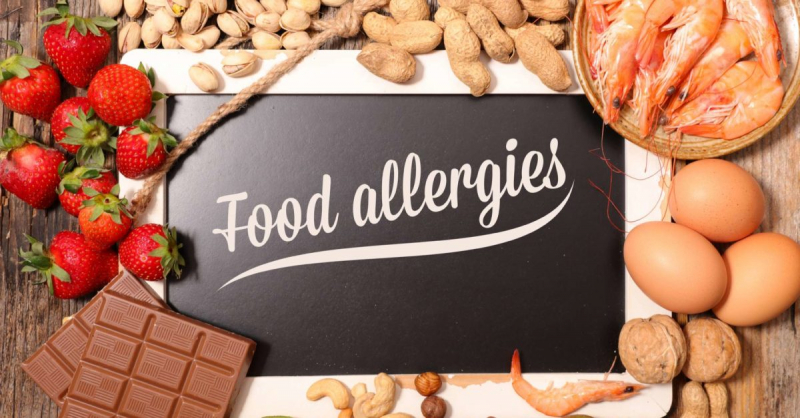
Foods You’re Sensitive To 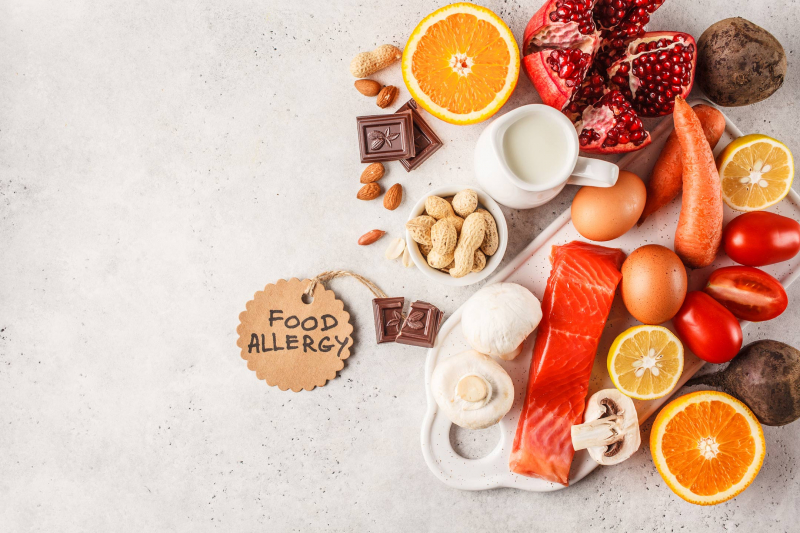
Foods You’re Sensitive To









